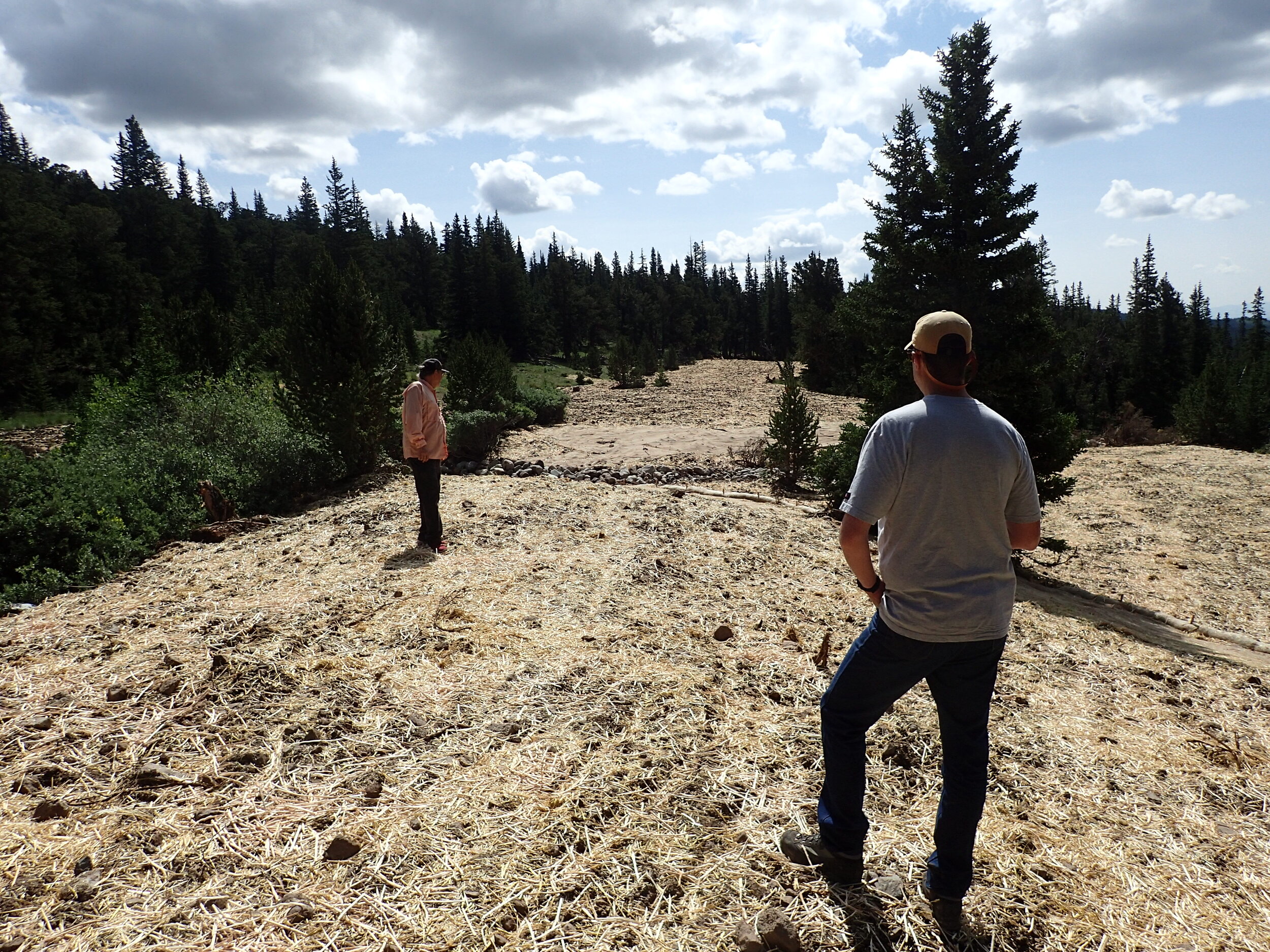MINERAL PARK PROJECT POST-PROJECT REVIEW
It was a cool morning on August 14 when 24 volunteers from Cutthroat Chapter Trout Unlimited, the U.S. Forest Service, National Trout Unlimited, other TU chapters, and even some members of the public (and their children) gathered to revegetate a reclaimed mine site above the town of Alma in Colorado. The gathering place was at an elevation of over 10,000 feet, but the project itself was at over 11,400 feet, just below tree line. The project area had been the site of settling ponds used by the Mineral Park Mill, a cyanide leach mill last operated in 1943. The 1.7 acre site was was on Forest Service land and the entire project was a coordinated effort of Trout Unlimited, the U.S. Forest Service, and local partners Anglers All and Cutthroat Chapter. Most of the funding for the reclamation project was provided by the Forest Service. Check out the area via this drone footage courtesy of Trout Unlimited OneDrive (sharepoint.com).
After a quick safety briefing, tools were distributed, and the volunteers were shuttled up to the project site. The work for the day was to plant 550 tufted hairgrass plants, 140 water sedge plants and 240 bristlecone pine seedlings. The site had previously been treated for lead contamination and recontoured to correct the drainage around the old settling ponds. This work involved moving about 1850 cubic yards of material to cap the site with clean fill and constructing a rip rap lined drainage channel to divert the natural drainage away from tailings. The planting was accomplished in about four and a half hours and the volunteers returned to the Alma Town Hall for lunch. Many of the volunteers afterward enjoyed hiking or fishing in the area, which is a popular recreation destination.
The United States has thousands of mining-impacted sites that need actions to reduce the impact of contamination associated with them. Most of these sites are in prime recreation areas and remediation projects can restore the locations to public access recreation uses. This project is a model for cooperative work between National Trout Unlimited, the USFS, and local partners. It is a very small first step, but to accomplish anything, you need to take that first step.









